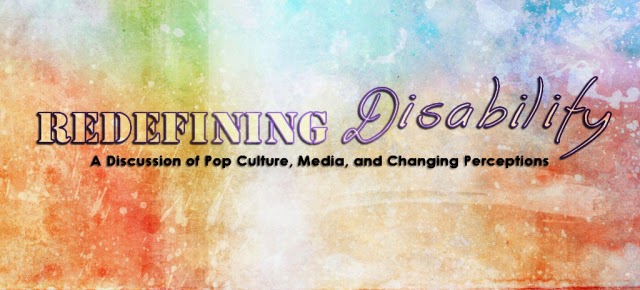2. If you have a medical diagnosis, do you see yourself as having a disability? Why or why not? If you don’t have one, how do you view the concept of disability or the people in your life who have them?
 Up until two years ago, I was invisibly handicapped. I was disabled but able. Multiple back surgeries and joint replacements will do that. While I was technically disabled, I really didn't view myself disabled because I could pretty much do what I wanted within a set of limitations. I never bothered to try and file for Social Security Disability because I knew I would be able to adapt to somewhat normal movements despite my doctors trying to get me to file. Yes, it took years, but I proved them all wrong and did it within reason.
Up until two years ago, I was invisibly handicapped. I was disabled but able. Multiple back surgeries and joint replacements will do that. While I was technically disabled, I really didn't view myself disabled because I could pretty much do what I wanted within a set of limitations. I never bothered to try and file for Social Security Disability because I knew I would be able to adapt to somewhat normal movements despite my doctors trying to get me to file. Yes, it took years, but I proved them all wrong and did it within reason.But, all that changed with my stroke. Now, my brace wasn't temporary so bones could heal. My brace and possibly a cane would be a visible part of my life forever. I progressed from wheelchair to walker to cane very quickly in a matter of months. My arm with the spasticity was visually nonfunctioning. My speech pattern had changed with the aphasia.
Now, I am visually disabled so I'm disabled. The fact that I can't use my right arm, can't move my wrist or fingers is not only a visible sign of being limited, but is limiting things I want and should be doing. This is different. Now I'm disabled for all the world to see and hear. No one asks why I have a handicapped license plate. Just like when I turned thirty and they stopped carding me to buy alcohol in a convenience store.
It's a sad turn of events, for sure. A proverbial slap in the face. Not that I liked people asking why I was handicapped. There was a comfort in not being visually handicapped. I looked no different than anybody else. I could even deny the fact for myself for certain things because although limited I could function. No, I wasn't lifting several hundred pounds anymore, but only I knew that. Denial can be a beautiful thing.
 If I get excited or giggly, you can't understand a word I say...or even be able to say a word. I'll just have one arm gesturing wildly. With only one hand gesturing, do you only understand half of what I'm saying? I've often wondered over the past two years. Yeah, I talk with my hands. It used to be sign language, but now it's just emphasizing everything I say, but that's how this bad habit got started.
If I get excited or giggly, you can't understand a word I say...or even be able to say a word. I'll just have one arm gesturing wildly. With only one hand gesturing, do you only understand half of what I'm saying? I've often wondered over the past two years. Yeah, I talk with my hands. It used to be sign language, but now it's just emphasizing everything I say, but that's how this bad habit got started. To prove my use of visual impact of my speech, look how many graphics I use in my blogs instead of others. I still try and use hand gestures because my husband is legally deaf. He reads lips are facial features to understand his 95% loss of actual hearing what is being said to him. I could teach him sign language, but he's a stubborn Irish man and clings to his 5% and is resistant to learning it. He turned 66 last Saturday. I pick the fights I can win.
Why do I fight the term disabled? Doesn't everyone want to be normal or viewed as normal? Is there a stigma attached to being classified as disabled? Are there preconceived notions attached? Are we second class or even third class citizens because of being disabled?
Yep, it's a matter of perception. The world touts the "beautiful" people. But true beauty is what really counts and it's inside of all of us. Yes, even me. It isn't like battling cancer. We didn't die or lived to be touted as heroes. We wear outward scars of our battles as we struggle to find our new normal. We seem somehow lacking to those who view us on a daily basis. We are missing limbs, eyesight, mobility, and can't be everything for everyone else. We have an innate need to be needed and useful part of society too. Instead of being looked down on, or pitied, or scorned.
I have found that beauty begins within. You need to recognize it in yourself for others to see it. Find your talents. Even if you can no longer do this or that. You still are a valuable commodity. You still have something to offer and bring to the table with the "norms." Stand up, even figuratively, you have fought harder than any of them to get where you are or still be where you are at. Disabled is just a word used to describe us. I prefer the words "victorious survivor."
Nothing is impossible with determination.


























